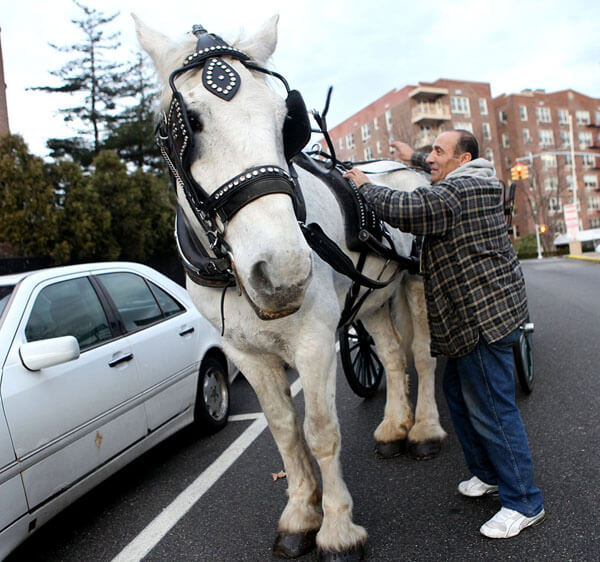By Tom Momberg
City officials announced Sunday that a compromise has been reached between the opposing parties in the ongoing debate on whether to ban horse carriages from Manhattan streets. The agreement will keep the tourist-driven industry in Central Park, with new stables to be built there.
Mayor Bill de Blasio, who pledged in his 2013 campaign for office to work with the City Council to ban the industry, picking up financial support from a handful of animal rights groups, made the deal public with the support of City Council Speaker Melissa Mark-Viverito and the Teamsters union, which represents the carriage-industry workers.
Many of the carriage drivers and other industry workers live in Jackson Heights and Bayside.
Proponents of the former plan to ban the industry claimed the horses were not well cared for, and do not belong in the congested central borough, where they breathe in car fumes. Industry advocates have long said the regulations over the industry ensure the safety and health of all the horses, that a ban would eliminate jobs and that horse carriages are a historic staple and part of the city experience for many visitors.
In the details worked out between the two sides, private horse-carriage businesses would be allowed to continue to use their stables on Manhattan’s Upper West Side until a new large permanent stable, which will be on public park land, is built, with an expected completion date of October 2018.
But beginning June 1, a ban is supposed to be put in place preventing carriage rides on city streets with the exception of the drivers going to and from Central Park and the current stables, the mayor’s office announced.
By the time the new stable, which officials said would allot space for 68 carriages and 75 horses, is complete, the number of licensed horses would be limited to 95—only about half the current 180 licenses.
City Councilmen Daniel Dromm (D-Jackson Heights) and Ydanis Rodríguez (D-Manhattan), whom have been avid supporters of a ban on the industry, said they were happy with the compromise, although more details are still supposed to be worked out.
“We are pleased that at the end of an exhaustive process, all sides in this negotiation were able to come to an amicable agreement that both removes horses from the dangers of city traffic and saves the jobs of many in the horse-carriage industry,” Dromm and Rodríguez said in a joint statement. “Working out the logistics of this agreement will be key in reaching an outcome that is suitable to all parties involved.”


































